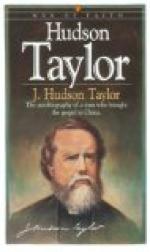O Hudson, mountain-born and free,
Thy youth a deep impression
takes,
For, mountain-guarded to the sea,
Thy course is but a chain
of lakes.
=The First Settlement of the Hudson.=—In 1610 a Dutch ship visited Manhattan to trade with the Indians and was soon followed by others on like enterprise. In 1613 Adrian Block came with a few comrades and remained the winter. In 1614 the merchants of North Holland organized a company and obtained from the States General a charter to trade in the New Netherlands, and soon after a colony built a few houses and a fort near the Battery. The entire island was purchased from the Indians in 1624 for the sum of sixty guilders or about twenty-four dollars. A fort was built at Albany in 1623 and known as Fort Aurania or Fort Orange. From Wassenaer’s “Historie van Europa,” 1621-1632, as translated in the 3d volume of the Documentary History of New York, a castle—Fort Nassau—was built in 1624, on an island on the north side of the River Montagne, now called Mauritius. “But as the natives there were somewhat discontented, and not easily managed, the projectors abandoned it, intending now to plant a colony among the Maikans (Mahicans), a nation lying twenty-five miles (American measure seventy-five miles) on both sides of the river, upwards.” In another document we learn that “The West India Company being chartered, a vessel of 130 lasts, called the ‘New Netherland’ (whereof Cornelius Jacobs, of Hoorn, was skipper), with thirty families, mostly Walloons, was equipped in the spring of 1623.”
* * *
Where Manhattan reigned of old
Long before the age of gold
In the fair encircled isle
Formed for beauty’s warmest smile.
William Crow
* * *
In the beginning of May they entered the Hudson, found a “Frenchman” lying in the mouth of the river, who would erect the arms of the King of France there, but the Hollanders would not permit him, opposing it by commission from the Lord’s States General and the Directors of the West India Company, and “in order not to be frustrated therein, they convoyed the Frenchman out of the rivers.” This having been done, they sailed up the Maikans, 140 miles, near which they built and completed a fort, named “Orange,” with four bastions, on an island, by them called “Castle Island.” This was probably the island below Castleton, now known as Baern Island, where the first white child was born on the Hudson.
In another volume we read that “a colony was planted in 1625 on the Manhetes Island, where a fort was staked out by Master Kryn Fredericke, an engineer. The counting-house is kept in a stone building thatched with reed; the other houses are of the bark of trees. There are thirty ordinary houses on the east side of the river, which runs nearly north and south.” This is the description of New York City when Charles the First was King.
* * *




